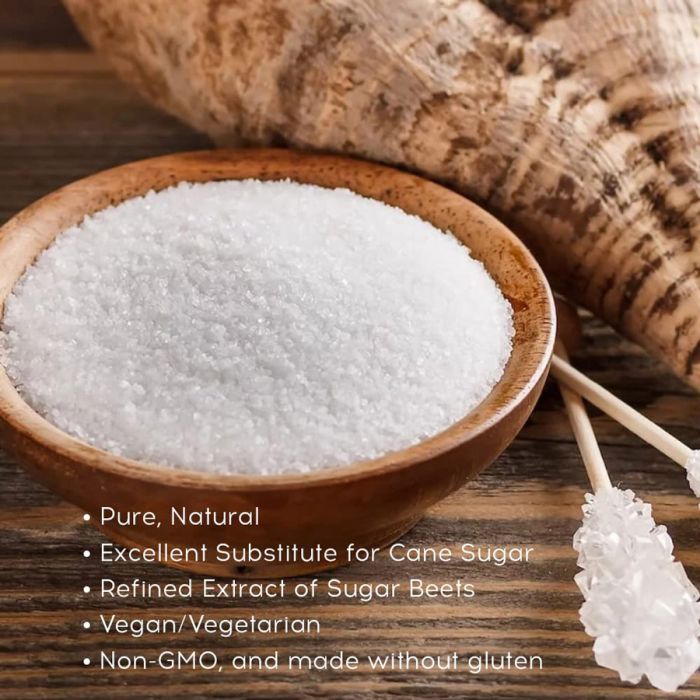Many health-conscious buyers wonder if beet sugar vs cane sugar makes a difference in dietary impact.
Many health-conscious buyers wonder if beet sugar vs cane sugar makes a difference in dietary impact.
Blog Article
Discover the Uses and Conveniences of Beet Sugar Vs Cane Sugar in Your Daily Diet Regimen
Discovering the distinct top qualities of beet and cane sugar exposes even more than just their sweetening capacities; it highlights their unique effects on health and wellness and cooking arts. Beet sugar, recognized for its subtle flavor, is usually preferred in fragile treats, whereas cane sugar, with its tip of molasses, adds splendor to durable meals. Each kind holds its very own dietary profile and glycemic ramifications, welcoming a much deeper understanding of their functions in a well balanced diet regimen and lasting intake techniques.
Beginning and Manufacturing Procedures of Beet and Cane Sugar

The distinctive climates and soil kinds required for growing sugar beets and sugarcane contribute to differences in their cultivation techniques and geographical distribution, affecting the business economics and sustainability of their production. beet sugar vs cane sugar.
Nutritional Contrast In Between Beet Sugar and Cane Sugar
In spite of originating from various plants, beet sugar and cane sugar are nutritionally extremely similar, both mostly consisting of sucrose. Each gives concerning 4 calories per gram, translating to about 16 calories per teaspoon. Structurally, both sugars are composed of around 99.95% sucrose, with very little amounts of other substances like dampness and trace element, which do not dramatically change their dietary accounts.

Eventually, when picking between beet sugar and cane sugar based upon nutritional web content alone, both deal the same benefits and downsides as they are essentially types of the very same molecule-- sucrose, supplying fast energy without various other nutrients.
Influence On Health And Wellness: Glycemic Index and Caloric Material
Discovering better right into the results of beet sugar and cane sugar on wellness, it is vital to consider their glycemic index and calorie material. The glycemic index (GI) of both beet and cane sugar is around 65, categorizing them as high-GI foods, which can cause quick spikes in blood sugar Read Full Report levels.
Each sort of sugar contains around 4 calories per gram, making their calorie material matching. For those keeping an eye on caloric consumption, specifically when handling weight or metabolic wellness conditions, understanding this equivalence is essential (beet sugar vs cane sugar). Nonetheless, extreme consumption of any kind of high-calorie, high-GI food can add to wellness concerns such as weight problems, cardiovascular disease, and insulin resistance.
Environmental and Economic Factors To Consider of Sugar Production
Beyond health and wellness influences, the production of beet and cane sugar also increases substantial ecological and economic issues. Sugar beet growing often tends to call for cooler environments and has a lower geographical footprint compared to sugar cane, which prospers in tropical regions.
Furthermore, using pesticides and fertilizers in both beet and cane sugar farming can result in soil destruction and contamination, more influencing biodiversity and regional water bodies (beet sugar vs cane sugar). The selection in between growing sugar beet or cane frequently hinges on local environmental conditions and economic elements, making the sustainability of sugar production a complicated problem
Culinary Applications and Flavor Differences
While the environmental and anonymous economic facets of sugar manufacturing are undoubtedly considerable, the option in between beet and cane sugar also influences cooking applications and taste profiles. Beet sugar, derived from the sugar beet plant, is recognized for its extremely neutral preference.
Walking stick sugar, drawn out from sugarcane, often keeps molasses traces, which impart a distinctive splendor and depth. This slight molasses taste improves the intricacy of baked items, sauces, and marinades. It is particularly preferred in things where a sugar undertone is desired, such as in brownies or gingerbread. The slight variation in moisture web content between beet and cane sugar can influence the structure and consistency of recipes, making cane sugar a preferred selection for certain dishes that benefit from its special residential or commercial properties.

Conclusion
In conclusion, both beet and cane sugar have distinct beginnings and manufacturing find out here now procedures, using similar nutritional profiles with minor distinctions in salt material and flavor. While their effect on health, particularly relating to glycemic index and calories, is comparable, the choice in between them commonly comes down to environmental, financial aspects, and certain cooking requirements. Comprehending these aspects can lead customers in making informed choices that line up with their health goals and taste choices.
Report this page